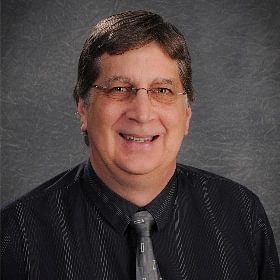This episode is a master class in raising health outcomes at lower costs from an award-winning health care system in … Alaska?! Who knew? In fact, I learned about the work of the Southcentral Foundation and the Nuka System of Care only because I happen to listen to Swedish health care podcasts and heard about them on one of those shows. Color me surprised when the interview suddenly switched to English and the guest was from Alaska.
Here’s the short version of what’s happening with the Nuka System of Care, which serves Alaska Native and American Indian people. They have gone as close to the Triple Aim as I’ve seen in this country. Health outcomes are superior at costs about half the average. Patients—or, as they call them, customer owners—are happy. So are clinicians. How this was achieved (spoiler alert here) was not through incrementally trying to jigger the earlier and pretty much failing model of health care delivery that had been going on in Alaska for Alaska Natives at that time. No can do!
The Nuka System of Care was rebuilt pretty much from the ground up to be, for reals, patient- and community-centric and to be relationship based, not transactional. Behavioral health is a built-in, not dangling off the back bumper. It’s also about assembling a multidisciplinary primary care team, one in which each clinician on the team really can work at the top level of their license.
In this health care podcast, I had the honor and pleasure of speaking with Douglas Eby, MD, MPH, CPE. Dr. Eby is the physician executive/vice president of medical services, Southcentral Foundation Nuka System of Care. This episode is sort of two parts. There is the main episode, which you’re listening to now, that gets into the how to provide effective health care from the provider organization, clinician, and community standpoint. In a few days, we’ll release “An Expert Explains” episode, where Dr. Eby specifically goes over the lessons a self-insured employer might take away from all of this.
If you are intrigued by what you hear in this episode, Dr. Eby will also be speaking on July 14, 2021, at the Aspirational Healthcare Conference, which will be virtual. Go to aspirationalhealthcare.com for more info. Yours truly will be there as well on July 15, and I’m very much looking forward to it.
For those of you into more immediate gratification, some of the themes that Dr. Eby covers in this health care podcast are expanded on in my interview with Greg Makoul (EP203) about listening to patients and Darrell Moon, who is the founder of the Aspirational Healthcare Conference. You can hear in EP305 talking about the 1% year over year most expensive claimants and the best way to help them and help your cost management at the same time.
You can learn more at southcentralfoundation.com.

Douglas K. Eby, MD, MPH, CPE, is vice president of medical services for Southcentral Foundation’s Malcolm Baldrige Award–winning Nuka System of Care. Doug is a physician executive who has done extensive work with the Institute for Healthcare Improvement and other organizations around the Triple Aim, accountable care organizations (ACOs), patient-centered medical homes, whole system transformation, workforce, cultural competency, health disparities, and other topics. His speaking and consulting include work across the US, Canada, and portions of Europe and the South Pacific. Doug has spent more than 20 years working in support of Alaska Native leadership as they created a very innovative integrated system of care that has significantly improved health outcomes. Doug received his medical degree from the University of Cincinnati in Ohio and his master’s in public health degree from the University of Hawaii.
03:52 What’s the what and where of the Nuka System of Care?
04:49 What does the word Nuka mean?
05:25 “It’s all built around this idea that we’re raising … the ability for people to take control of their own health issues, and then we are just advisors … on that journey.”
06:39 “The reason why people do pay attention to us is … the proof in the pudding.”
09:09 What did the Southcentral Foundation do to create an ideal health system?
11:09 “It’s access, it’s relationship, it’s partnering, it’s being known … it’s getting at the whole family and the whole person.”
12:02 “There’s two huge problems with modern medicine all across the world. One is how money is handled … [and the other] is this blind acceptance of the medical model.”
14:14 “For 20 years, we’ve established a base of companionship and relationship.”
16:06 What does advanced primary care look like?
19:25 How does this new style of chronic management work, and why does it get better results than Centers of Excellence and other health system models?
23:25 “We refer out to specialists 65% less often than we used to.”
24:17 “It’s a ballet; it’s continual … all day, every day.”
25:33 How big are the patient panels in this system?
28:49 “I would say that 95% of what we do here is directly translatable to any location in the world.”
29:20 “Your workforce needs to look and feel like the community you’re trying to influence.”
32:12 “This is all designed and driven by the community that I am hired to support.”




